Buffalo attorneys Joshua Dubs and John Richmond recall the anxious moments a decade ago.
Both lawyers, during the recession brought on by the housing crisis, were separately amid a job search.
Richmond, a Rochester area native, had graduated from the Seton Hall School of Law in 2009 and hoped to land a role with a New York City firm.
“Like many graduates in my class, my first-year associate position that I earned in between the summer of my second and third year of law school was rescinded due to economic instability,” he said. “When I sat for the July 2009 New York bar exam, I had no clue where or when I would be working and it was stressful.”
Long days he spent studying for the bar examination didn’t allow much for sending resumes.
“As soon as the bar was over, I spent countless hours putting together cover letters and making sure each one was unique” for specific firms, he said.
Dubs, meanwhile, wrapped up his education in 2008 at the University at Buffalo School of Law. He wasn’t sure where he would end up, either.
They can relate to the plight this year’s law school graduates are set to endure as a result of cuts and Covid-19’s dismantling of the U.S. economy.
The Law Alumni Association at UB will host a webinar on May 21 in which graduates and current students can hear from Dubs and other panelists on lessons learned from job searches during the last recession. For the class of 2020, it comes just days after their virtual graduation ceremony on May 17, and at the close of an academic year torn apart by the pandemic.
Personal connections and meeting people in the legal community are two avenues that could lead to a job, Dubs and Richmond said.
“I would certainly encourage everyone to get out there, network as much as possible and avail themselves to training,” Dubs said. “I met with as many attorneys as I could to let them know that I was young and trying to make a name for myself.”
He said older attorneys in the region were friendly and willing to offer assistance in the job search or refer clients.
“Western New York – and Buffalo, in particular – is such a great place to work as an attorney, and especially as a young attorney, because everybody is so willing to help you and answer questions,” he said.
Dubs said legal service nonprofits such as the Volunteer Lawyers Project have work for young attorneys while they learn from more experienced staffers.
Richmond, through a connection with a friend, had an interview that he anticipated wouldn’t lead to anything.
“But I prepared for it like I actually had a shot at getting the job,” he said. “I studied the law firm, took time on a cover letter and really hit it off with the attorney who was interviewing me.”
That firm, Weitz & Luxenberg PC in New York City, hired him and he worked there for five-plus years in mesothelioma personal injury defense. He later returned closer to home with Lipsitz & Ponterio LLC in Buffalo. He worked there until this year when he created Richmond Vona LLC with colleague Keith Vona.
“You really have to hit your network, reach out to people and just get your foot in the front door,” Richmond said. “At least then you get an opportunity for the employer to see your personality and hear why you think you’d be a good fit.”
Dubs is now a partner at Webster & Dubs PC. He initially volunteered with Neighborhood Legal Services and worked in eviction defense following his graduation from UB. A lawyer he met in a case, Loran Bommer, offered him discounted office space. Dubs took him up on it and launched his own practice. The next few years he learned more about different legal sectors from Bommer to expand is capabilities.
He said it is important to avoid being discouraged and be open to opportunities, regardless of if it involves a facet of law you didn’t picture yourself working in.
“Your answer can’t be, ‘I’m a personal injury attorney, I don’t do that stuff,’ ” Dubs said. “Take the traffic ticket, take the will. As long as you are either competent to do that, or have somebody that’s willing to mentor you on it, you’re ethically sound in taking the case.
“That will put a little money in your pocket and keep you going.”

